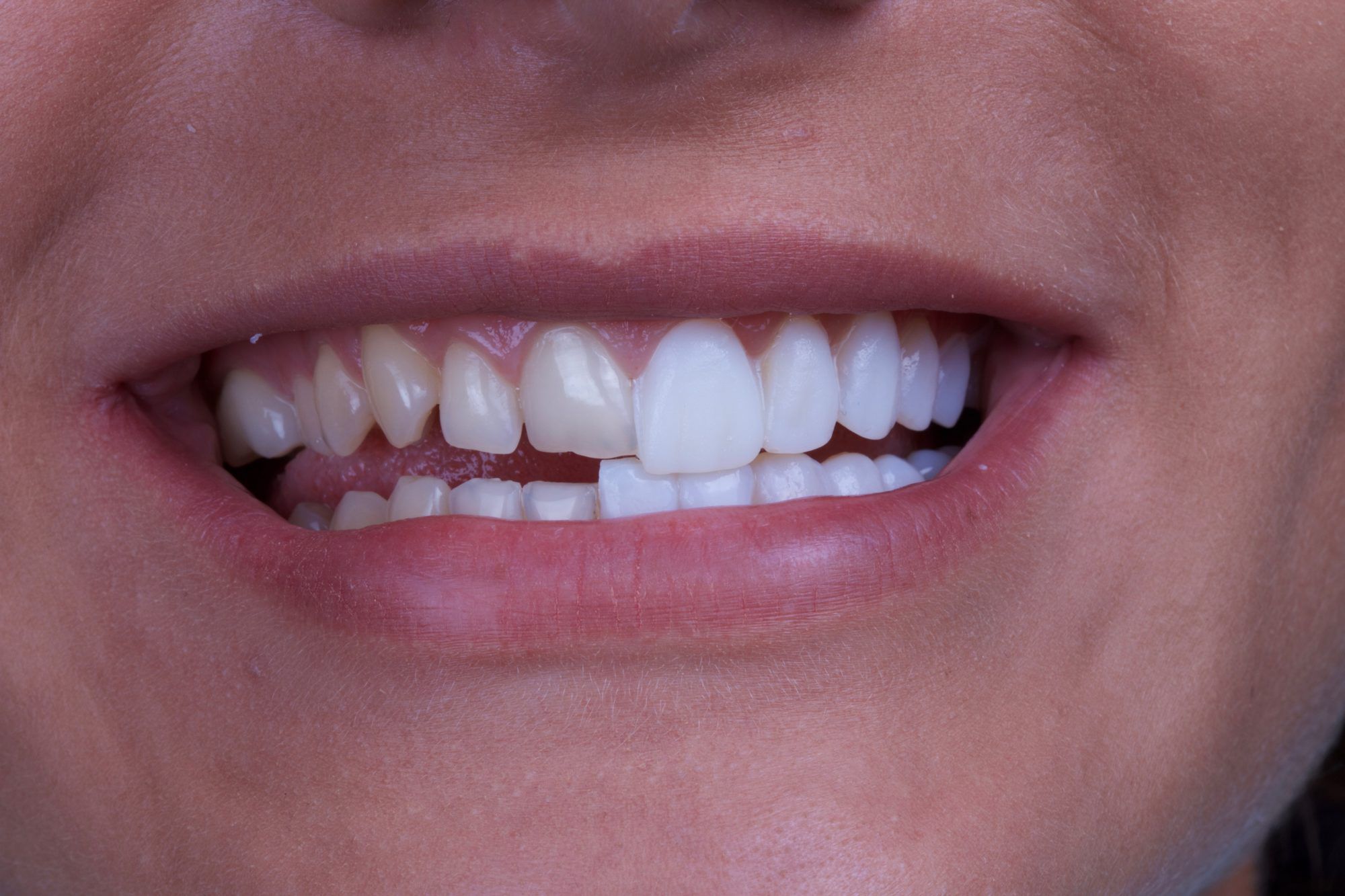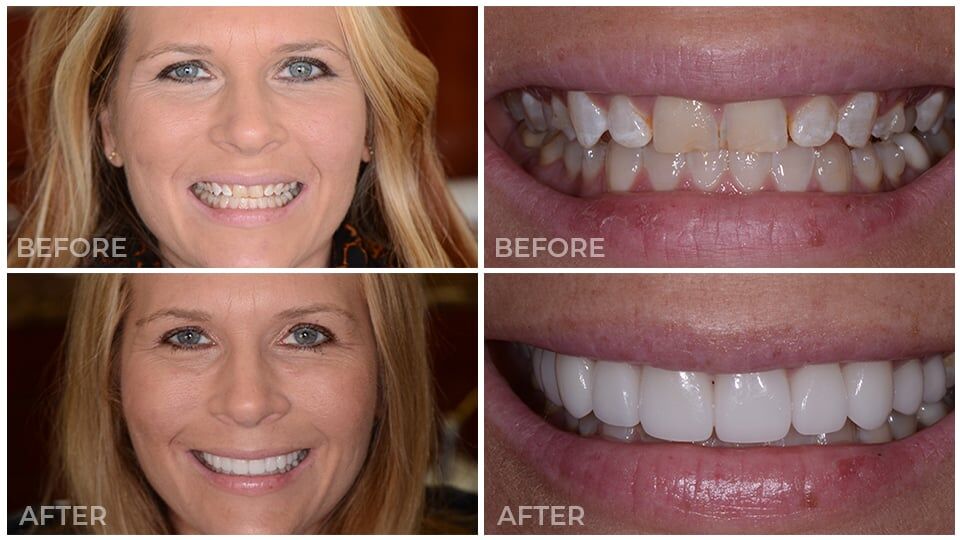The Complete Summary of Veneers: Kinds, Makes use of, and Their Influence on Your Smile
Veneers function as a popular service for people looking for to improve their dental appearances. These custom-crafted shells can successfully mask imperfections such as discoloration and spaces. With 2 key types offered, porcelain and composite material, each deals distinctive benefits and limitations. The effect of veneers expands beyond mere appearance, influencing self-confidence and social communications. Recognizing their kinds and advantages is necessary. What might this suggest for one's total lifestyle?
Understanding Veneers: What They Are and How They Work
Veneers are thin shells, commonly made from porcelain or composite material, that are custom-crafted to fit over the front surface area of teeth. They serve both aesthetic and useful purposes, providing an option for numerous oral blemishes such as staining, voids, and small misalignments. By adhering to the tooth enamel, veneers create a natural appearance while enhancing the shape and shade of the teeth.
The procedure usually includes a first examination, where a dental professional evaluates the individual's requirements and goes over preferred outcomes - Porcelain Veneers Dentist. Following this, a very little amount of enamel may be gotten rid of to suit the veneer. Perceptions of the teeth are then required to ensure an accurate fit. Once made, the veneers are bound securely to the teeth using an unique dental adhesive. This treatment not just enhances the smile's look yet additionally helps protect the underlying teeth from further damage, making veneers a prominent choice for many looking for a smile transformation
Types of Veneers: Porcelain vs. Composite Resin
The difference between porcelain and composite material veneers depends on their material structure and qualities. Each type uses varying levels of price, longevity, and durability, affecting clients' selections based upon their individual requirements. Understanding these differences is crucial for making a notified choice regarding oral improvements.
Material Distinctions Explained
While both porcelain and composite resin veneers offer the very same cosmetic purpose, they differ substantially in material residential properties, sturdiness, and visual outcomes. Porcelain veneers are crafted from a ceramic material that imitates the all-natural transparency of teeth, providing a lifelike appearance. Their smooth surface area is immune to discoloration, making them an attractive choice for those looking for a durable visual. In contrast, composite resin veneers are made from a tooth-colored plastic material, providing adaptability and convenience of application. They may not attain the very same degree of illumination or clarity as porcelain. In addition, composite veneers can be more easily formed and fixed, making them an extra adaptable alternative in particular oral circumstances. Each kind provides special benefits tailored to individual preferences.
Longevity and Sturdiness
When contrasting porcelain and composite material veneers, durability and resilience are significant factors. Porcelain veneers are understood for their toughness, frequently lasting 10 to 15 years with proper treatment. Their durability against damaging and tarnishing makes them a favored selection for individuals seeking lasting results. In contrast, composite material veneers usually have a shorter life-span, balancing 5 to 7 years. While they can be repaired extra quickly if damaged, they are extra vulnerable to wear and staining in time. The selection in between these materials frequently relies on the individual's way of living, aesthetic objectives, and maintenance choices. Eventually, recognizing the differences in longevity and durability can lead clients in picking the veneer type that ideal suits their requirements.
Cost Contrast Insights
When choosing in between porcelain and composite material veneers, cost is a critical consideration. Porcelain veneers commonly range from $800 to $2,500 per tooth, showing their durability, visual charm, and resistance to discoloration. These veneers call for a more considerable procedure and specialized lab job, adding to their higher price. On the other hand, composite resin veneers are usually more inexpensive, costing in between $250 and $1,500 per tooth. They can be used in a solitary go to, which minimizes labor prices. However, composite veneers may require extra frequent replacements, potentially boosting lasting expenditures. Eventually, the selection in between porcelain and composite material veneers relies on specific budgets and desired outcomes, balancing initial costs against longevity and aesthetic results.
The Benefits of Choosing Veneers for Your Smile
Picking veneers uses considerable benefits for those looking for an enhanced smile. Their enhanced aesthetic allure can transform the appearance of teeth, while their stain-resistant buildings ensure a long lasting brightness - What Are Veneers. This mix makes veneers a prominent alternative for people wanting to attain a perfect smile
Boosted Aesthetic Appeal
Veneers usually arise as a preferred solution due to their transformative visual advantages when individuals seek to boost their smiles. These slim shells, typically constructed from porcelain or composite resin, can effectively hide flaws such as chips, gaps, and imbalance. By simulating the natural look of teeth, veneers offer a smooth, glowing smile. Their customizable nature permits a tailored approach, making it possible for individuals to pick shades and forms that best fit their facial attributes. Furthermore, veneers can develop an uniform look, improving total facial proportion. This aesthetic improvement not only improves confidence however can also positively affect social interactions and individual relationships, making veneers a preferred choice for those seeking to achieve a brighter, a lot more attractive smile.
Discolor Resistance Conveniences
Veneers not only improve visual appeal however additionally offer considerable tarnish resistance, making them an attractive choice for people worried about preserving an intense smile. Composed of resilient products such as porcelain or composite material, veneers are much less porous than natural teeth, which assists stop the absorption of discolorations from common offenders like coffee, tea, and red a glass of wine. This inherent stain resistance enables individuals to appreciate their favored drinks without fretting about staining. Dental Veneers. Furthermore, the smooth surface area of veneers makes them less complicated to tidy, further enhancing their longevity and maintaining their excellent look. Because of this, veneers provide a practical solution for those seeking both charm and functionality in their dental care
The Process of Getting Veneers: What to Anticipate

Although the procedure of obtaining veneers might appear challenging, comprehending the steps involved can reduce concerns. Originally, a consultation with a dentist is necessary to establish if veneers are the ideal option for the individual's oral concerns. During this appointment, the dentist will certainly go over desired end results and take perceptions of the teeth.
Next, a 2nd appointment is set up for tooth preparation, where a percentage of enamel is usually removed to fit the veneers. Temporary veneers might be placed while the custom-made ones are crafted in a dental laboratory, which typically takes a pair of weeks.
When all set, the dental expert will certainly put the veneers, making certain appropriate fit and shade before bonding them to the teeth making use of a special adhesive. After last adjustments, the dental expert will offer advice on care. Recognizing these steps can assist patients feel extra comfortable and notified throughout the veneer procedure.
Maintenance and Treatment for Your Veneers
Keeping veneers requires constant like guarantee their durability and look. Proper oral health is essential; brushing twice daily with a non-abrasive tooth paste and flossing routinely assist protect against plaque buildup around the veneers. Furthermore, regular oral exams are important for keeping an eye on the problem of the veneers and addressing any prospective problems beforehand.
When biting to prevent damage, clients must prevent difficult foods and extreme pressure. It's likewise a good idea to restrict intake of tarnishing materials, such as coffee, tea, and merlot, as these can influence the veneers' color gradually.

Changing Your Smile: Real-Life Impact of Veneers
A radiant smile can significantly improve one's self-confidence and total look. For several individuals, veneers serve as a transformative service, efficiently attending to numerous oral problems such as staining, voids, and imbalance. These slim coverings, custom-made to fit over the front of the teeth, can create a harmonious and aesthetically pleasing smile.
Real-life cases illustrate the profound impact veneers can have. Clients often report an instant increase in self-worth and social communications following their procedure. The newly found confidence can bring about more chances in personal and expert life, as people really feel more inclined to engage and reveal themselves.
In addition, the psychological advantages prolong beyond mere appearance; several experience boosted psychological well-being as they accept their smiles. Veneers not only boost physical qualities however additionally contribute significantly to overall high quality of life, highlighting their value in cosmetic dentistry.
Frequently Asked Inquiries
How Much Time Do Veneers Typically Last Prior To Needing Substitute?
Veneers generally last in between 10 to 15 years before needing replacement. Variables such as oral health, dental behaviors, and the sort of product used can affect their longevity and general sturdiness. Normal dental exams are a good idea.
Can Veneers Be Removed, and if So, Exactly how?
Yes, veneers can be removed. A dental practitioner usually utilizes specific devices to carefully remove them from the teeth, making certain minimal damages to the underlying enamel, often followed by needed changes or remediations for suitable visual appeals.
Are Veneers Suitable for Every person's Oral Condition?

Will Obtaining Veneers Pain or Require Anesthesia?
Getting veneers typically includes very little discomfort, and lots of people receive local anesthetic to assure a pain-free experience. Sensitivity may occur temporarily later, however most find the process tolerable and are pleased with the outcomes.
Exactly How Do Veneers Affect Tooth Level Of Sensitivity After Positioning?
Veneers can briefly raise tooth sensitivity due to the elimination of enamel and the bonding procedure. Many individuals experience a decrease in level of sensitivity gradually as the teeth get used to the new veneers.
Veneers are thin shells, typically made from porcelain or composite resin, that are custom-crafted to fit over the front surface area of teeth. Porcelain veneers are crafted from a ceramic material that imitates the all-natural translucence of teeth, providing a lifelike appearance. Porcelain veneers usually vary from $800 to $2,500 per tooth, showing their sturdiness, aesthetic charm, and resistance to discoloration. In contrast, composite material veneers are usually a lot more cost effective, setting you back in between $250 and $1,500 per tooth. Composed of sturdy products such as porcelain or composite resin, veneers are much less permeable than natural teeth, which aids protect against the absorption of discolorations from common culprits like coffee, tea, and red a glass of wine.